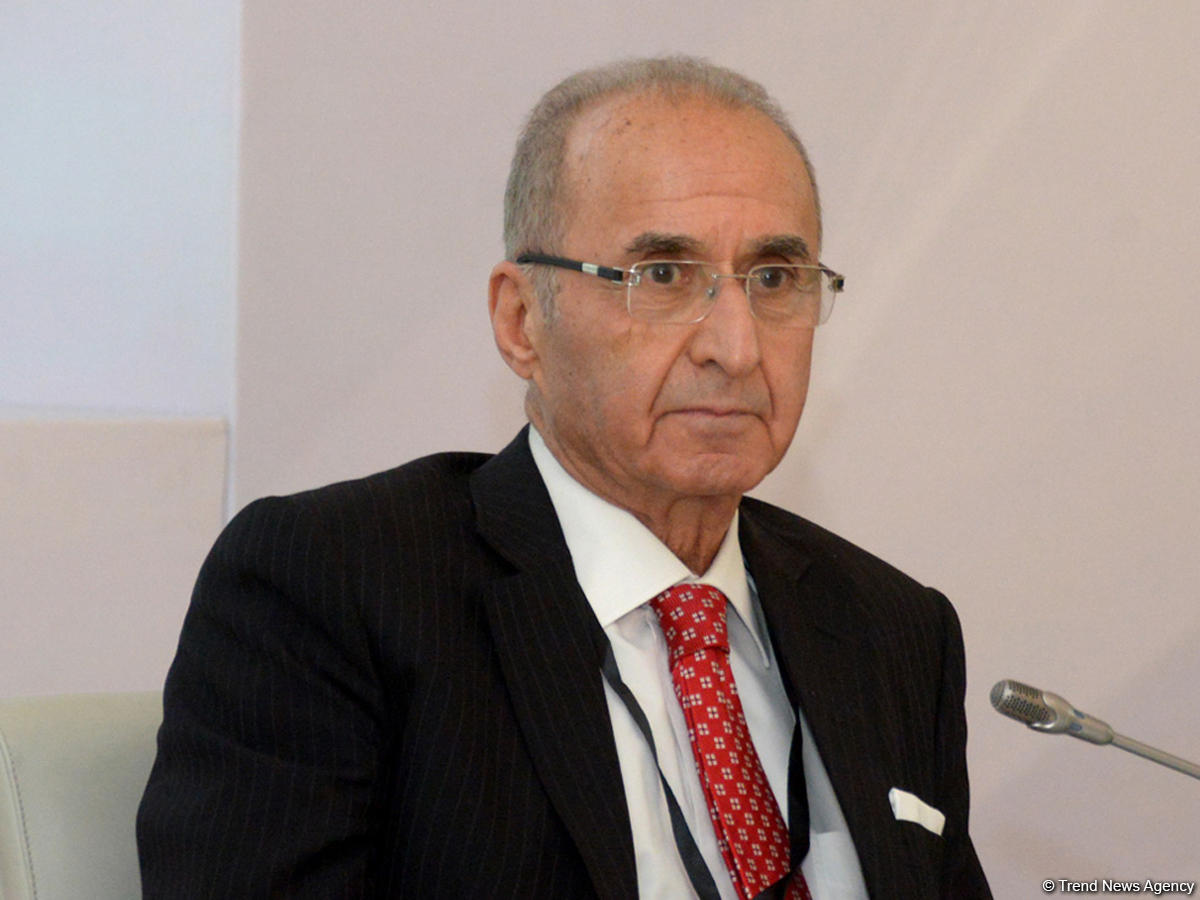Baku, Azerbaijan, Apr. 7
Trend:
Neither peace nor stability will be in the South Caucasus as long as Armenia pursues an aggressive policy, said a statement issued by Hikmet Cetin, ex-speaker of Turkey's Grand National Assembly (parliament), former Foreign Minister.
Cetin, who is also a member of Nizami Ganjavi International Centre, issued this statement in line with the latest provocations of Armenia on the line of contact between Azerbaijani and Armenian troops.
Cetin expresses condolences to the families and relatives of the Azerbaijani soldiers, who were killed during the retaliatory measures of Azerbaijan's armed forces to the Armenian provocation, Azerbaijan's State Committee on Work with Diaspora told Trend Apr.7.
Nagorno-Karabakh and seven surrounding districts, which are native Azerbaijani lands, are under Armenia's occupation, and over a million of Azerbaijanis became refugees and IDPs as a result of this conflict, according to the statement.
"New threats of military conflicts may arise at any time if the conflict is not resolved peacefully," says the statement.
Cetin emphasized that he believes in importance of peaceful phased settlement of the Nagorno-Karabakh conflict, for which the Armenian armed forces, first of all, should be withdrawn from Azerbaijan's seven districts.
Secondly, Nagorno-Karabakh's status and future should be determined exceptionally within the framework of Azerbaijan's territorial integrity, noted Cetin in his statement.
"Naturally, peace will lead to economic recovery in the region," says the statement. "This cooperation will also cover the other countries of the region.
Region's rich resources will be used for the benefit and happiness of people, according to the statement.
On the night of April 2, 2016, all the frontier positions of Azerbaijan were subjected to heavy fire from the Armenian side, which used large-caliber weapons, mortars and grenade launchers. The armed clashes resulted in deaths and injuries among the Azerbaijani population. Azerbaijan responded with a counter-attack, which led to liberation of several strategic heights and settlements.
Military operations were stopped on the line of contact between Azerbaijani and Armenian armies on Apr. 5 at 12:00 (UTC/GMT + 4 hours) with the consent of the sides, Azerbaijan's Defense Ministry earlier said. Ignoring the agreement, the Armenian side again started violating the ceasefire.
The conflict between the two South Caucasus countries began in 1988 when Armenia made territorial claims against Azerbaijan. As a result of the ensuing war, in 1992 Armenian armed forces occupied 20 percent of Azerbaijan, including the Nagorno-Karabakh region and seven surrounding districts. The 1994 ceasefire agreement was followed by peace negotiations. Armenia has not yet implemented four UN Security Council resolutions on withdrawal of its armed forces from the Nagorno-Karabakh and the surrounding districts.






